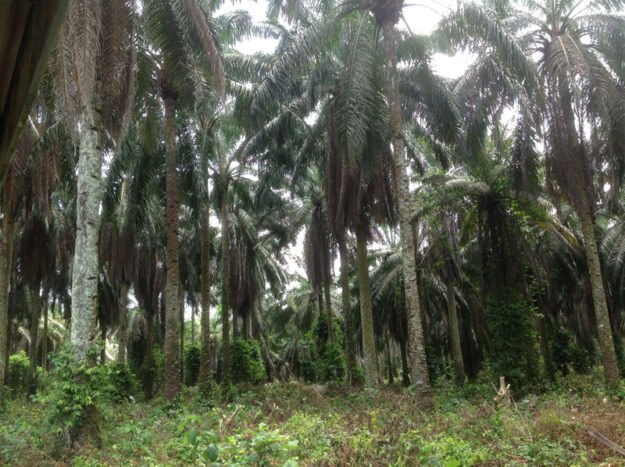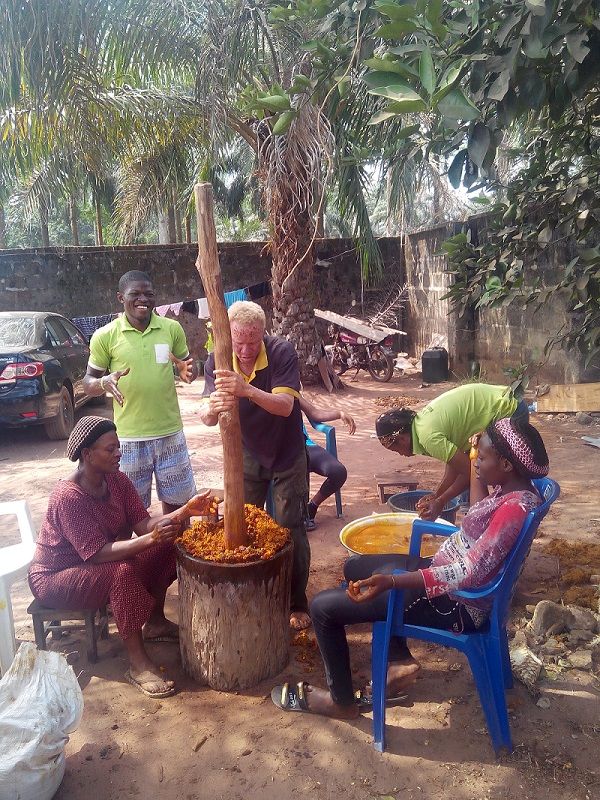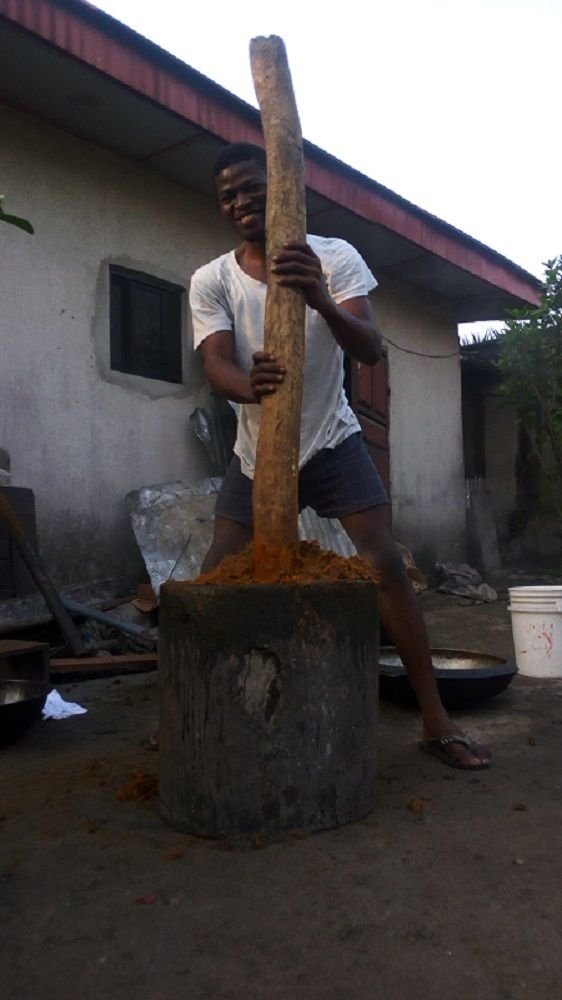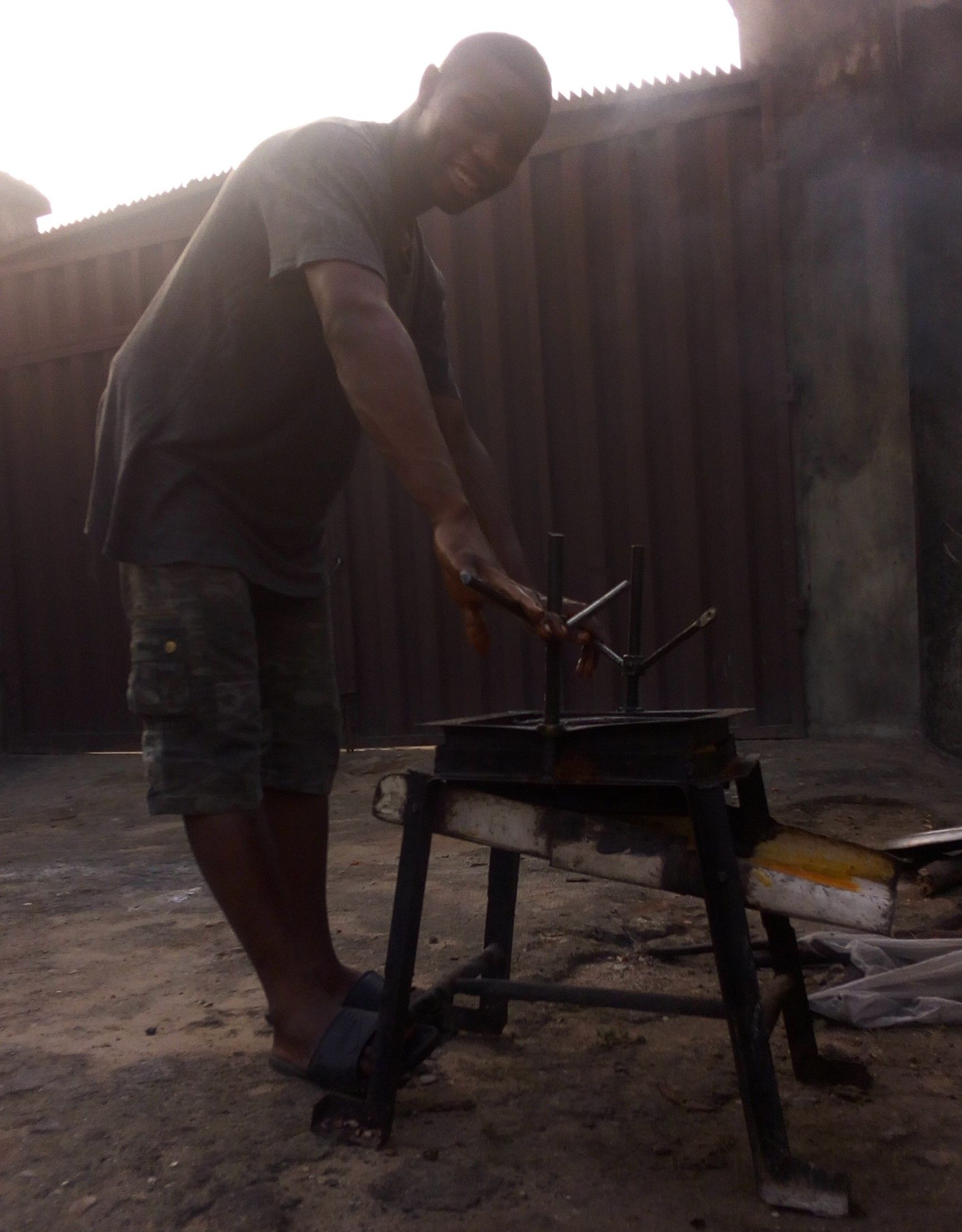Processing Palm Oil in the City
This is a writing entry made for the #igbo-tales contest by @cwen. The Igbo culture is very rich with a lot of folklores, stories, festivals and a whole lot of other activities. A few examples of festivals celebrated in Igbo land includes the New Yam festival, Ekpe festival, and a host of others. For this post however, I will be talking of something Igbos are mainly known for – palm oil.Introduction
Driving through the expressways that link Igbo states like Abia, Imo, Ebonyi, Enugu and Anambra, you are greeted with arable forests. Here in these forests are thousands, if not millions of palm trees. It is from these palm trees that the palm fruits processed into palm oil are gotten from. What you may not know is how these fruits are processed before finally getting the oil used and loved by everyone.
Image Source: Palm Trees in Imo State
The Beginning
I’m from Imo state but I reside in Port Harcourt with my parents. You’d expect that as a PH boy, I’d be more of an ‘ajebutter’ but I assure you, I am not. My dad has several plots of lands in the village where there are so many palm trees. My mum is someone I would say is down-to-earth so she having been bred and brought up in the village, she still continued with that style of life.Whenever we go home for Xmas, we end up processing palm fruits a few days after the 25th, and then we go back to PH with the processed oil. Now, sometimes during the year (not December), we get alerted that some of our palm fruits are ripe. Dad goes back home, calls the guy who cuts them and he brings these back to PH for us to begin process. Now you can imagine living in the city and cooking with firewood, pounding palm fruit in mortars while your neighbors strain their ears to know what you are doing.

Processing palm fruits two years ago in the village.
Processing Palm Oil
This process begins with first cutting or separating the palm fruits from the bunch. This would make it easier to pick. You need to be careful at this point so that the sharp pointed parts of the bunch does not injure you.After picking them up, pour them into a big pot, add enough water to cover up the palm fruits in the pot and begin boiling. Normally, palm fruits are boiled using a tripod and firewood as using any other form of cooking could be slow and result in a waste of the cooking fuel.
As soon as it is boiled, the next step is to bring the fruits out of the pot with the help of a sieve, and pour them into a mortar. This is now pounded until it is ready for separation. Soil (clay) is added during the pounding process. According to my mum, the soil is important as it helps the oil to form better.

Me pounding palm fruits in PH!!
After pounding, the chaff is separated from the nuts. This chaff is where the oil will be gotten from. The chaff is placed in a big frying pan (Agwada) and fried, amidst continuous stirring for a few minutes. It is then brought down while still hot and placed in a bag set aside for this purpose.

Image Source: Ancient method of processing palm oil.
In the past, this was not the method employed. However, with technological advancements, all you need now is a kind of machine that helps you squeeze the oil out of the chaff you have placed in the bag.

My younger brother operating the machine.
Once the oil is squeezed out, you simply cook for a few more minutes. The essence of this is to ensure that any water in the oil is dried up during the cooking process. If there’s water in any stored oil, it may not last more than six months.
Conclusion
Processing palm oil could be neck breaking but it’s easier in current times than what was obtainable in the past. It can also serve as a good source of money for you if you have the strength to process palm fruits in bulk. The Igbo way of life is beautiful and filled with a lot of niceties. The best thing that can ever happen to you is to be born an Igbo.Igbo Amaka!
Igbo Kwenu!!
Igbo Kwezuonu!!!
Will be needing good palm oil
Downvoting a post can decrease pending rewards and make it less visible. Common reasons:
Submit